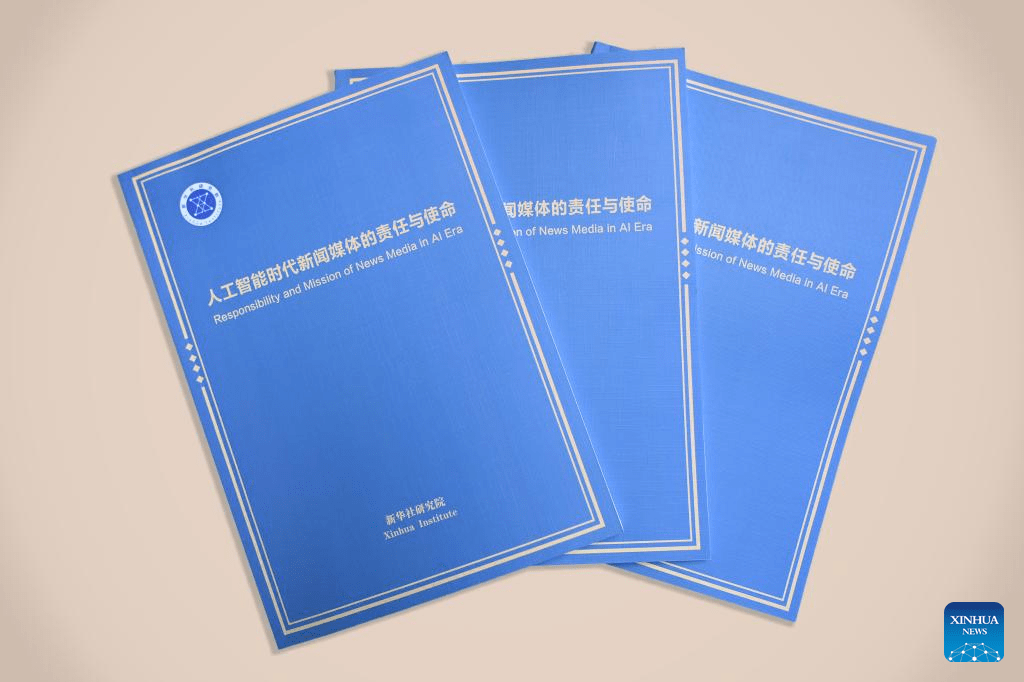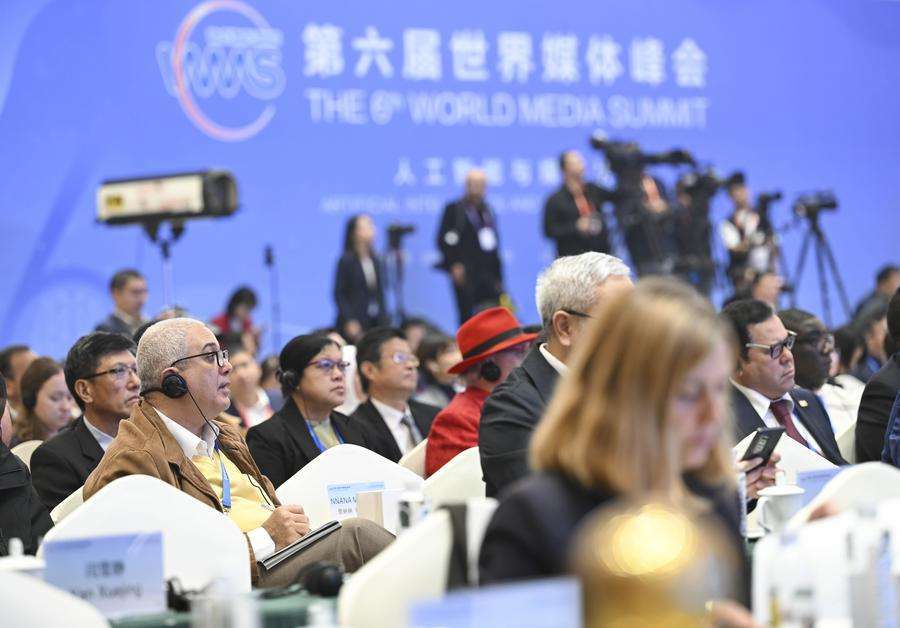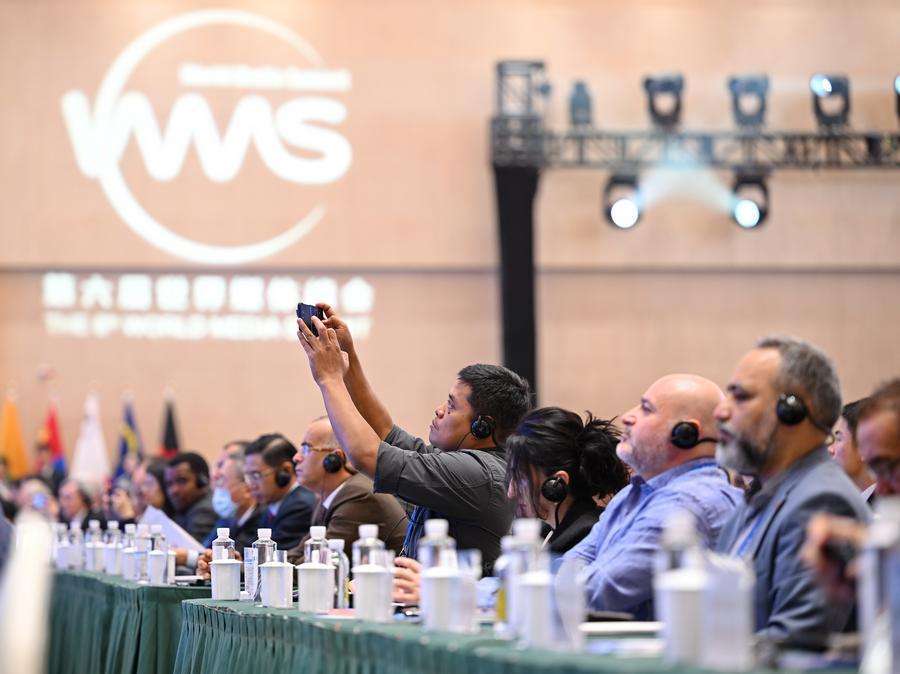URUMQI, Oct. 14 - A report released Monday by a think tank affiliated with China's national news agency Xinhua provides a look at the opportunities and challenges facing news media around the world in the era of artificial intelligence (AI).
Like previous revolutions in communications technology, the development of AI has not avoided the "Collingridge dilemma", according to the report, "The Responsibility and Mission of News Media in the AI Era", which highlights the contradiction between the need for development and the need for management to use AI for the betterment of humanity.
The report explores the opportunities and challenges facing global media in the AI era and examines the media's mission, highlighting the current state of the perception and use of AI in global news media, said Fu Hua, President of Xinhua News Agency and Chairman of the Academic Committee of the Xinhua Institute.
Divided into four parts, the 23,000-word report is based on extensive interviews with global media organisations, technology companies and scientific research institutes, as well as multilingual global media questionnaires.

According to a report released during the ongoing 6th World Media Summit in Urumqi, the capital of the Xinjiang Uyghur Autonomous Region in northwest China, the majority (66 %) of news outlets surveyed worldwide view the impact of generative AI on the industry positively. In addition, 51.2 percent of respondents have already begun implementing AI technology.
Media organizations have primarily expected generative AI to increase the timeliness and productivity of news coverage. However, they also expressed concern about the potential credibility risks associated with AI, particularly in terms of "distortion and inaccuracy of news leads and material". These concerns were shared by a substantial 76.4 % respondents.
In addition, a significant majority, 85.6 percent, of news media respondents believed that the application of generative AI requires better regulation.
These findings are based on a questionnaire survey conducted in 2024 with more than 1,000 respondents from 53 countries and regions, representing a variety of media such as newspapers, periodicals, radio and TV stations, news agencies, websites and mobile app providers.

Andrej Kondrasov, CEO of the Russian news agency TASS, said in his speech at the summit that artificial intelligence is fundamentally changing the media industry. "It is imperative that media practitioners come together and seize this opportunity to make the right use of this technology to collectively enhance the well-being of the people," He said.
"Artificial intelligence is driving a new wave of productivity in news media, creating advanced productive forces across content collection, production, distribution and rating," the report warns.
It enables better experiences for media organisations and consumers that transcend time and space, integrate virtual and real interactions, and facilitate human-machine communication.
In addition, AI is supporting new business models, including a media-for-everything approach, platform-based media, and a digitalised and intelligent industry.
However, the report warns of the many risks and challenges posed by AI uncertainty and its misuse.
The document states that false information is increasing in scale, form and distribution, creating a global crisis of authenticity, and warns that the limitations of technology and the private interests of users are creating a "collusion" effect that pollutes public opinion and negatively affects individual perceptions and social discourse.

Tamas Kovacs, CEO of the Hungarian media group ATV, said that the dissemination of truth remains at the heart of news and the responsibility that news media should bear in the digital era, amid the rapid development of new technologies. "Collaboration between media, especially in the area of new technologies, is more valuable than ever before," He said.
Moreover, according to the report, extensive value disputes and ethical dilemmas present AI with a dilemma between development and governance.
He adds that the "intelligence gap" can further widen the divide between people, between urban and rural areas, and between North and South, promoting technological hegemony and exacerbating imbalances in global development.
The report proposes that the news media should assume their social responsibility, commit to a "people first" approach and promote "intelligence for good" in the era of artificial intelligence.
To achieve this, news media could accelerate intelligence initiatives to enhance the value of media, prioritize ethical use of AI and establish reliable standards, take social responsibility for optimizing the cognitive environment, and foster dialogue and collaboration to improve global governance.
"In this way, powerful media forces will come together to create a community with a shared future and contribute to a better world," says the report.
XINHUA/ gnews - RoZ
PHOTO - Xinhua/Xin Yuewei, Hu Huhu, Mu Yu



